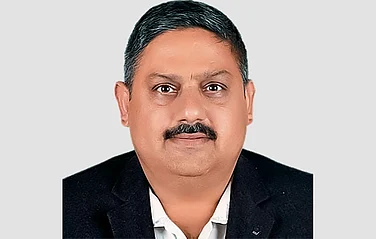If you’re a parent in 2025, you probably worry about the impact of artificial intelligence, climate change or war on your child’s career and life. While one could endlessly speculate about the future repercussions of these new global realities, you’d agree there’s no sure way of knowing. It is famously said that the best way to predict the future is to create it. No matter how the world shapes up in the years to come, you know that your child will be better off with a financial corpus to fall back on. Hence, one should start saving and investing towards this end with priority.
First, one should ascertain their target corpus for higher education and other children’s goals taking into account their child’s interests and preferences, number of years to the goal and expected rate of inflation with the help of a financial planner.
Next, one should calculate and commit savings specifically for their child related goals instead of one large kitty for all goals. Otherwise, one goal usually suffers as a result of the other. For instance, many parents risk their retirement savings for their child’s education. With savings separately allocated for children, one is less likely to divert funds from or to other goals and expenses. Also, having a separate savings kitty for the child can teach them about saving and financial responsibility from an early age.
One can start an SIP with an amount as small as Rs 500 per month. SIPs also indirectly discourage investors from timing the equity market. The purchase cost averages out over time when their investment buys more mutual fund units during a market downturn and less when the market is in an upswing.
Since children’s higher education and other life goals are years away and costs for the same are rapidly increasing every year, simply saving is not sufficient. Inflation erodes the value of idle savings. Hence, one has to put savings to work through suitable investments. Equities, whose returns are dependent on the growth of underlying businesses, have the potential to generate inflation-beating returns in the long term, making them an ideal choice for long term child related financial goals. In turn, equity-oriented mutual funds can be a smart way to take a research-backed, professionally managed, diversified and efficient exposure to equity markets.
A popular way to invest in equity mutual funds are Systematic investment plans or SIPs. These plans enable one to automate the investment of a fixed amount of money into equity funds at regular intervals. This simple automation ensures you save towards your child’s goals in a disciplined and consistent manner instead of putting aside money in a haphazard way, as and when there is a surplus. With SIPs, saving and investing for lofty goals can feel less intimidating as it requires smaller amounts to be put away instead of larger sums. For example, investing Rs 5,000 per month for a year is more achievable than investing Rs 60,000 in one go. SIPs can be started with a small amount as low as Rs 500 per month. SIPs also indirectly discourage investors from timing the equity markets. The purchase cost averages out over time when their investment buys more mutual fund units during a market downturn and less when the market is in an upswing. For instance, Rs 1000 will buy 10 shares of stock A when its price is Rs 100 and 20 shares when its price is Rs 50, averaging out the cost of 30 shares to Rs 67.
As parents, we want our children to be prepared for the future. Systematic investments in equity mutual funds can ensure that.
Disclaimer: Mutual fund investments are subject to market risks and do not offer guaranteed returns. The value of investments may go up or down based on market conditions.
The past performance of the mutual funds is not necessarily indicative of the future performance of the schemes. Please read all scheme-related documents carefully.













